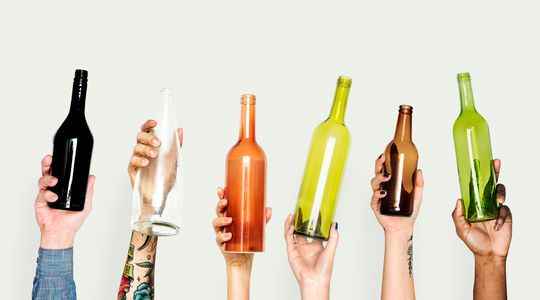Few are those who regret the 5-star liter, at least its poor quality content. On the other hand, the container had a great virtue: it was consigned. It is this practice that has fallen into disuse that the Lyon merchant Oé wanted to bring up to date. “No one believed it,” recalls Thomas Lemasle, co-founder in 2015 of the start-up specializing in the sale of organic, zero pesticide and vegan wines.
Launched five years later, the deposit is now deployed in 800 Naturalia, Botanic and Biocoop points of sale. One hundred thousand “Bring me back” macaroon bottles were sold in the first year, 250,000 in 2021 and, at the rate Oé is winning over distributors, probably 600,000 in 2022. The militant entrepreneur has just signed with the Club Med and Le Pain Quotidien.
Zero waste goal
According to calculations by the Environment and Energy Management Agency, returnable glass represents 79% fewer CO2 emissions and 33% water savings compared to new bottles. But in city stores, the price per square meter does not favor this practice, which requires storage space. “The deposit is an anomaly in the logistics flows of distribution, designed for the outward journey, but not for the return”, explains the entrepreneur. Oé has therefore set up collection rounds, providing bins and pallets with a cover: no more cardboard, no more Scotch tape and even less plastic film. “We are aiming for zero waste”, recalls Thomas Lemasle, who won the B Corp label and left his banker for La Nef, a solidarity finance cooperative.
Collected, washed and reused
The bottles are grouped together before being entrusted to washers, such as Uzaje or My Bottle is called come back, cleaned in batches of 4000, and returned to the sender. This still generates too much transport. “The more bottles there are, the more they will be collected, washed and reused locally”, assures the former executive of L’Oréal and Danone. Oé paved the way for other traders. Like the company Hecht & Bannier, based in Aix-en-Provence, which is talking today with Monoprix. But for one of its leaders, François Bannier, all the obstacles have not been removed: “What is the right price for the deposit? What are we doing for traceability? And the special formats? won’t sell well…”
“There is already a lot to do with 80% of the wines, packaged in three large standard formats”, estimates Thomas Lemasle. It lets stores set their deposit price, from 0 to 1 euro. “We are in favor of free, he specifies. Returns, from 20% to 90%, are not proportional to the price, but to the communication efforts of the sellers. It is a subject of education more than of monetization.”
